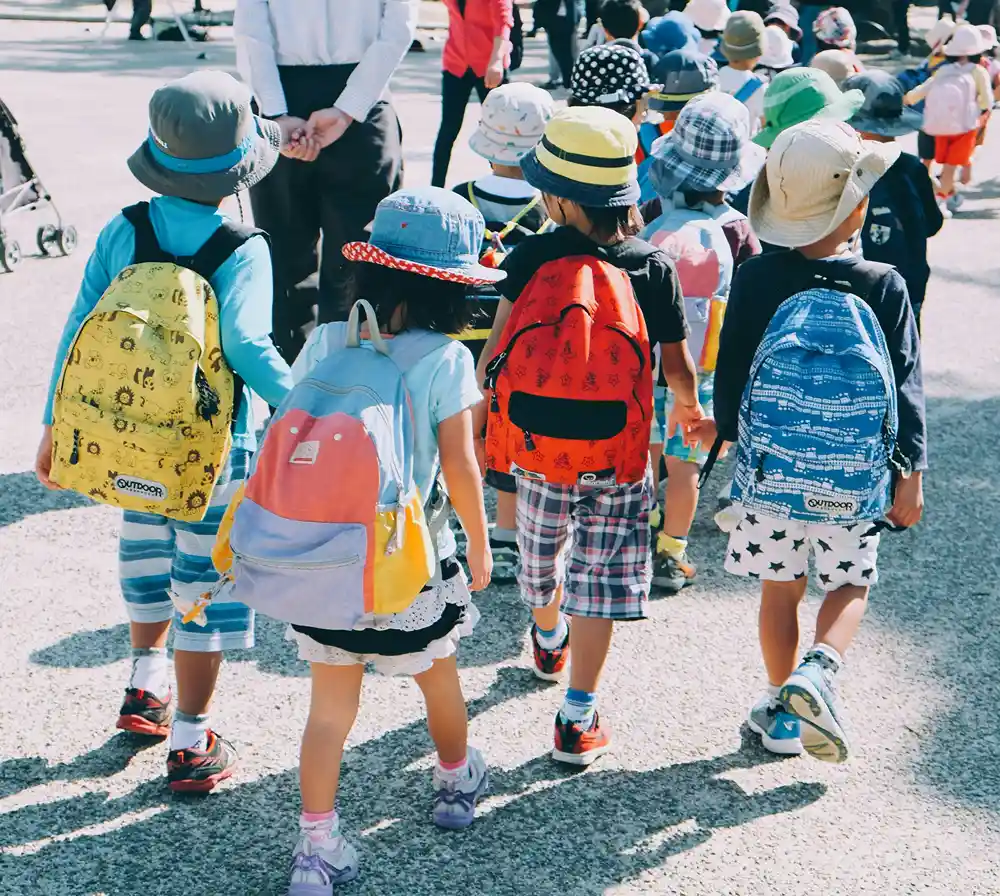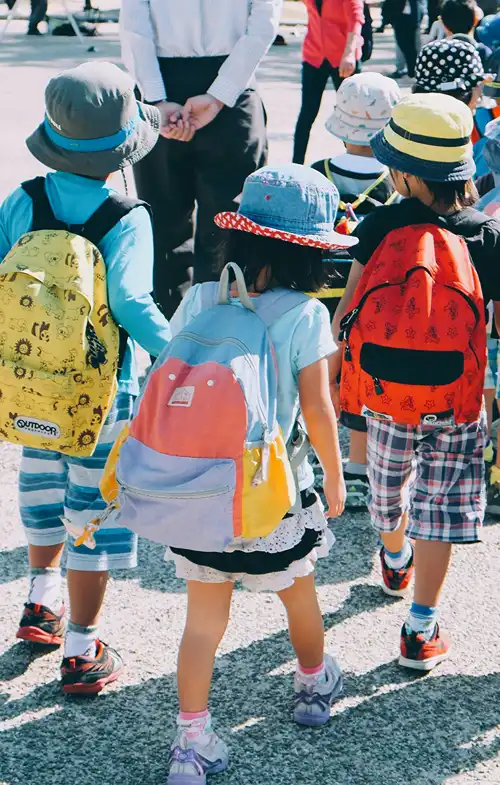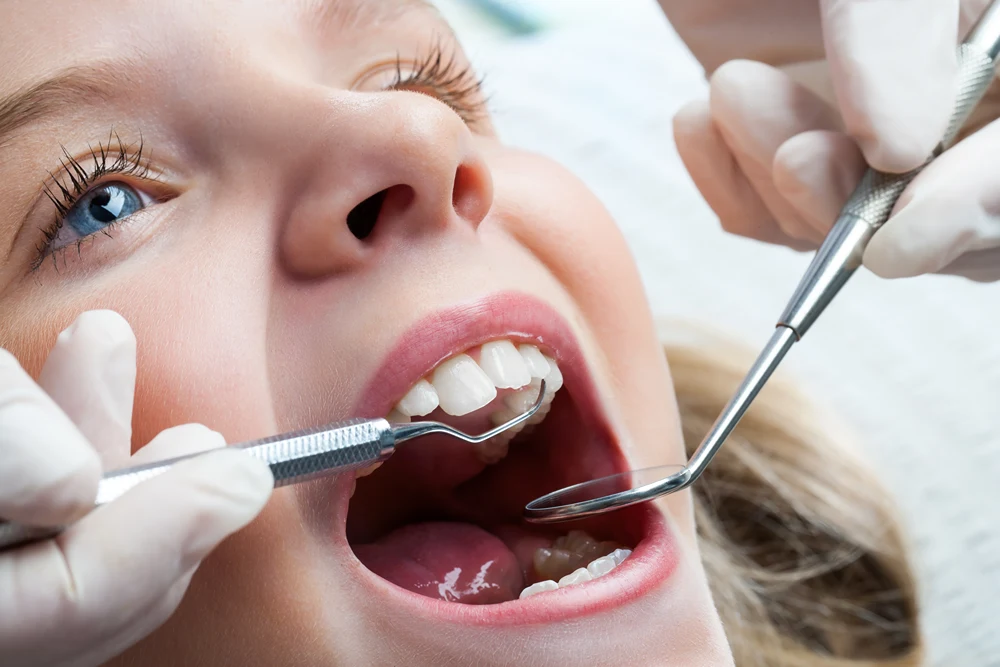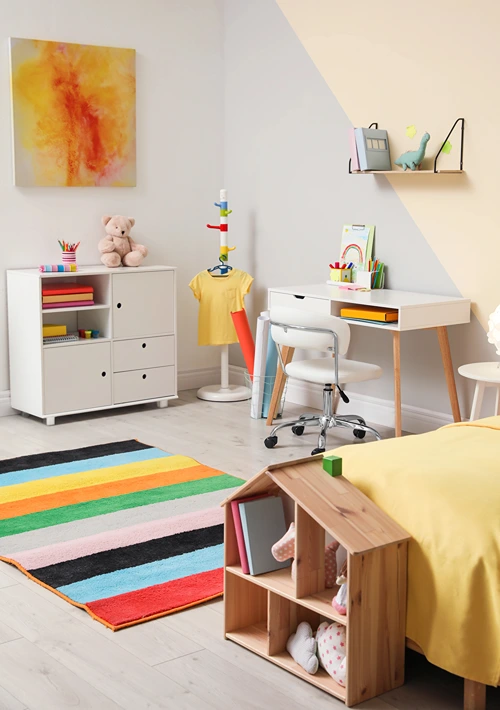The Emotional Backpack: Nurturing Your Child’s Well-being for School
As parents, we must prepare our children with physical things needed at school – backpacks, lunch boxes, paper, pens, pencils, and even clothes. However, one of the most important aspects of being ready for school often goes overlooked: their emotional well-being.
Children carry what we call an “emotional backpack” that is full of their thoughts, feelings, and experiences. Ensuring that parents equip this backpack well helps foster confidence, success, and your child’s emotional health at school.
What is the Emotional Backpack?
Every child entering school every day carries this emotional backpack filled with fears, hopes, dreams, and past experiences. Sometimes, it can feel light and easy, filled with excitement and anticipation for fun things, but other times, it may be very heavy and filled with stress, anxiety, or self-doubt.
Nurturing your child’s well-being by addressing their feelings through their emotional backpack helps to manage their emotions. It’s a way to further prepare them mentally to take on the challenges of each school day.
Managing Anxiety While At School
School is a stressor for many children, and it could be due to several things. Fear of failing, academic pressure, social status and dynamics, and other such situations can contribute to feeling anxious or stressed at school.
Some helpful ways to manage these types of causes of stress include the following:
- Establish a routine – more predictable schedules help children feel more secure and confident, which helps eliminate uncertainty.
- Validate and reassure feelings – let your child know that anything they feel is normal because they are not alone with their worries, which can help ease the trouble they believe they are isolated.
- Practice mindfulness – encourage your child to take deep breaths or perform visualization exercises to help calm nerves and distract from pressure.
Supportive Home Environment
Your child’s home impacts their emotional health, so having a supportive and positive home environment is crucial to carry over at school. Spend quality time together by participating in family bonding activities, like family game nights, dinners, or walks.
Encourage your child to foster independence by having responsibilities around the house, such as cleaning up their play area. Remember that as a parent, you are the example, so your approach to tasks and problems will influence your child’s responses and actions.
Helping Provide Emotional Resilience

It is important to develop the ability to bounce back when situations are uncertain, cause fear, or set your child back. There are a few things you can do to strengthen this emotional resilience.
- A place for open communication – encouraging your child to be open by creating a safe space for them to express themselves is a good way to tap into their feelings and get them to talk about what is bothersome or causing worry.
For example, when you’re looking for the right study materials or shopping for affordable school uniform pants for girls and boys, you can take the opportunity to get them to open up when feeling comfortable and willing to talk.
- Problem-solving – once you’re aware of how your child is feeling or what is causing problems, you can help your child to look for solutions. Rather than provide them a solution, allow your child to devise ways to solve their problems independently, which helps build up their resilience and confidence in working through issues.
- Coping strategies – you can provide your child with ways that you cope with stress or disappointment that are healthy and helpful, such as journaling, writing things down, or talking through your problems.
Supporting a Growth Mindset
Helping your child understand the benefits of a growth mindset, which is the belief that abilities can be developed through persistence and understanding, is a way to help them take on challenges and learn from their mistakes.
Supporting this mindset involves praising their efforts and expressing appreciation for their hard work, even if it doesn’t yield results. You can also help them understand that making mistakes is a good thing because it helps promote learning. One last thing you can work on to assist their growth mindset is by creating small, realistic goals for them to achieve so they can have a sense of accomplishment.
Growing Social Skills
Social skills are an essential aspect of a child’s emotional well-being. Building friendships can be intimidating for children, so you can help encourage them to develop healthy interactions by focusing on empathy, considering how others feel, and practicing kindness.
Practice different social situations your child may run into at home so that they can act out and feel more confident when dealing with real-life interactions, rather than utilizing social media. Clubs, sports, and other extracurriculars also help to provide opportunities for children to create friendships and develop teamwork and collaborative skills.
Encourage Healthy Habits
Your child’s physical health is also a necessary part of emotional health. Ensuring your child has adequate nutrition with a balanced diet and regular exercise provides energy and mood stability. Sleep is another aspect of physical health that accounts for a child’s behavior and mood, so ensure your child gets the recommended amount of sleep each night for success.
Final Thoughts
Sometimes, your child could require additional support beyond what we as parents can provide. Recognize symptoms of anxiety, withdrawal, frequent bouts of sadness, or behavioral changes that may require expert or professional guidance.
Preparing your child for school goes beyond supplies and outfits. Ensuring an emotional backpack with confidence, resilience, coping skills, and a positive outlook is present for a successful and rewarding school experience. By nurturing their emotional well-being, you empower your child to thrive personally and academically, enriching their school days and ensuring a healthy future.
References
- Dweck, C. S. (2006). Mindset: The New Psychology of Success. Random House.
- Goleman, D. (1995). Emotional Intelligence: Why It Can Matter More Than IQ. Bantam Books.
- Siegel, D. J., & Bryson, T. P. (2011). The Whole-Brain Child: 12 Revolutionary Strategies to Nurture Your Child’s Developing Mind. Delacorte Press.
- American Psychological Association. (2021). Resilience Guide for Parents & Teachers. Retrieved from www.apa.org.
- National Association of School Psychologists. (2020). Helping Children Cope With Changes Resulting From COVID-19. Retrieved from www.nasponline.org.











